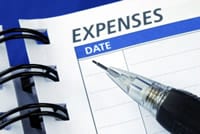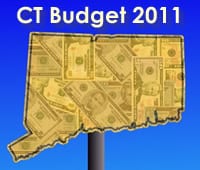Have you ever written down a budget to see where your money is going? Well, we did this earlier this month and everything looks fine, meaning that we make more than we spend.
That means we can pay our bills – great! That’s check one. Check two – are we saving enough? No, we’re not, but where do we get the money? We won’t find extra money to save until we find out exactly where our money is going.
If you want to do this process with me, follow these steps:
1. Write down a couple of short and long term goals. (Just so you’ll be inspired to do the work.)
Short term goals can be planning for a vacation, buying a car, paying down debt, saving for something that you want, and starting an emergency fund.
Long term goals can be saving to purchase a home, saving for your children’s education, retirement planning, and paying off debt/mortgage. What are yours? Imagine what you want or need and write it down now.
2. Track every penny you spend. That means finding a way to record your spending as it happens.
Don’t wait until the end of the month and use your bank statement or receipts. A single store can fall under many spending categories and receipts don’t always list items by name (or by names that you can decipher). Don’t think for a minute that your grocery store trip can be lumped under food. You may buy your pet food there, as well as cleaning supplies, shampoo, or even magazines.
I know this sounds time consuming, but it’s worth it. You can carry a pen and pad with you and write down everything by hand. Another way to track your money is by using a phone app. Choose the way that works best for your lifestyle.
3. Write your totals in a budget worksheet to see where you stand. Once you see a month’s worth of numbers, than you can begin to analyze what is going on. With this clear picture, you can make changes – lower bills to save money, get rid of unused services, check out the competition to switch etc.
Tell me what you have discovered with this exercise. Next issue, I will tell you what we have changed.



 The new CT budget will take effect on July 1
The new CT budget will take effect on July 1
 Do you want to cut your spending? Organize your belongings and stop to think before you buy. How does that help? Read below
Do you want to cut your spending? Organize your belongings and stop to think before you buy. How does that help? Read below Question: Which of the following is worth more?
Question: Which of the following is worth more? Now that Spring has arrived, most of us think spring cleaning. I am going to put a twist on that for this year that will save you money, too. I want you to spring clean your finances. This is not an all day project.
Now that Spring has arrived, most of us think spring cleaning. I am going to put a twist on that for this year that will save you money, too. I want you to spring clean your finances. This is not an all day project.